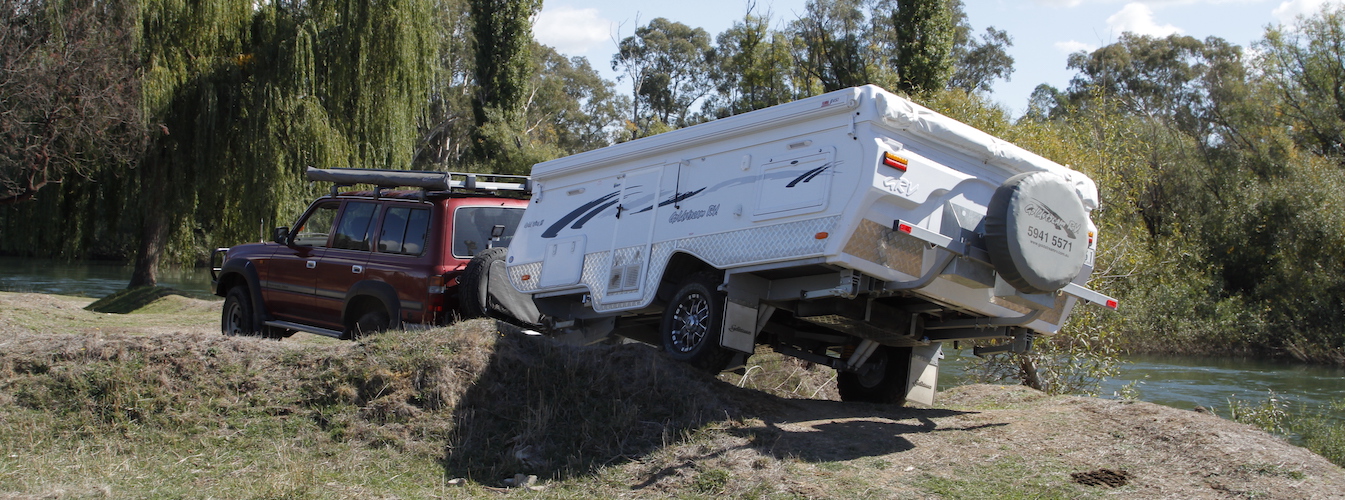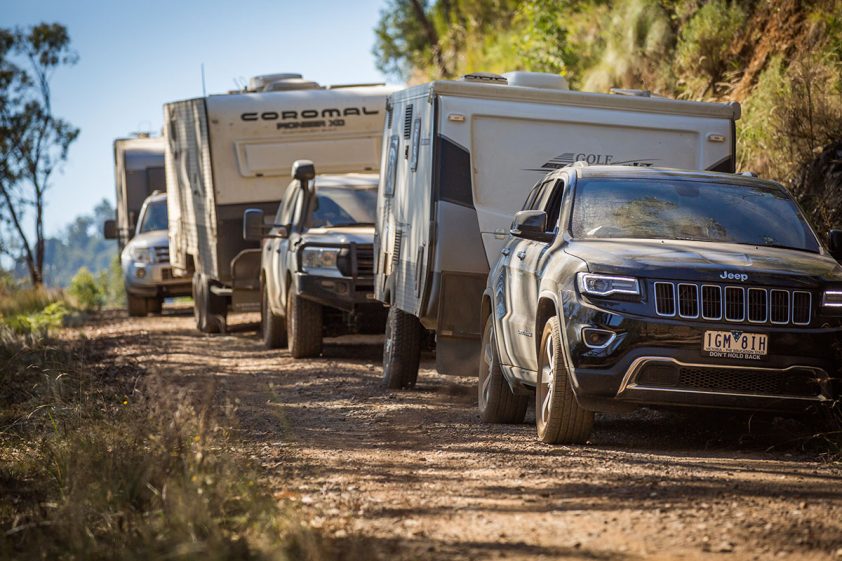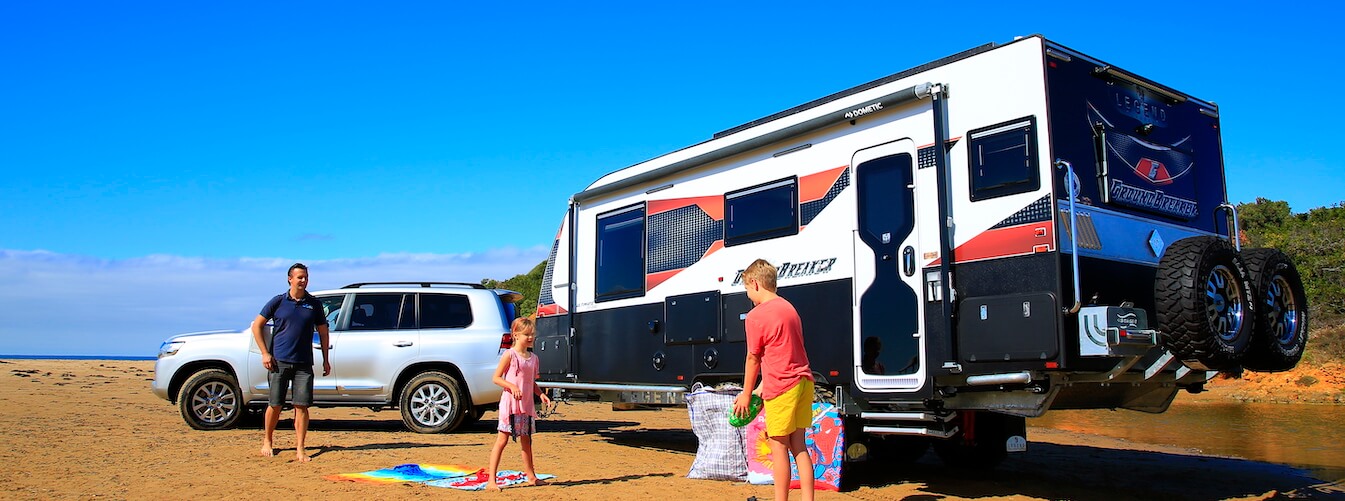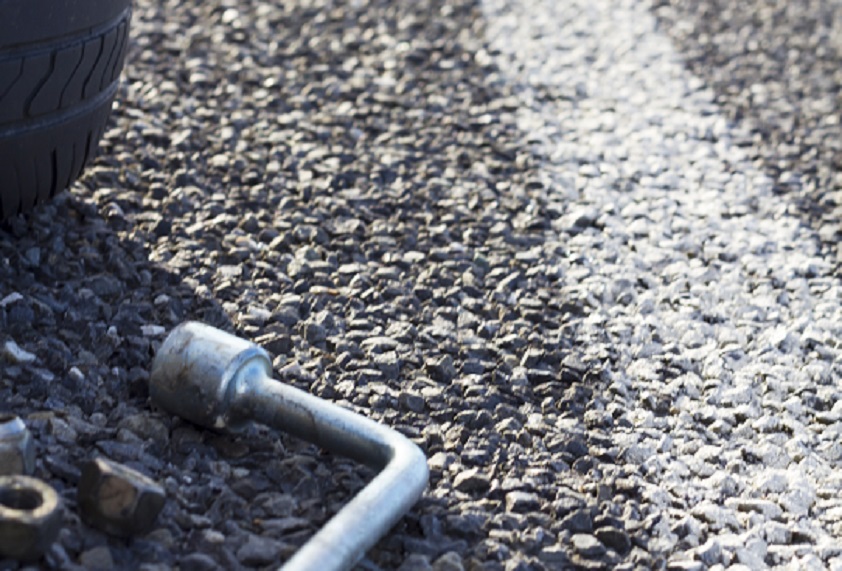SENSIBLE PACKING
A well-designed van will have a decent amount of space for your clothes, food, gear, etc., but even the best of them will bulge at the seams if you don’t pack sensibly.
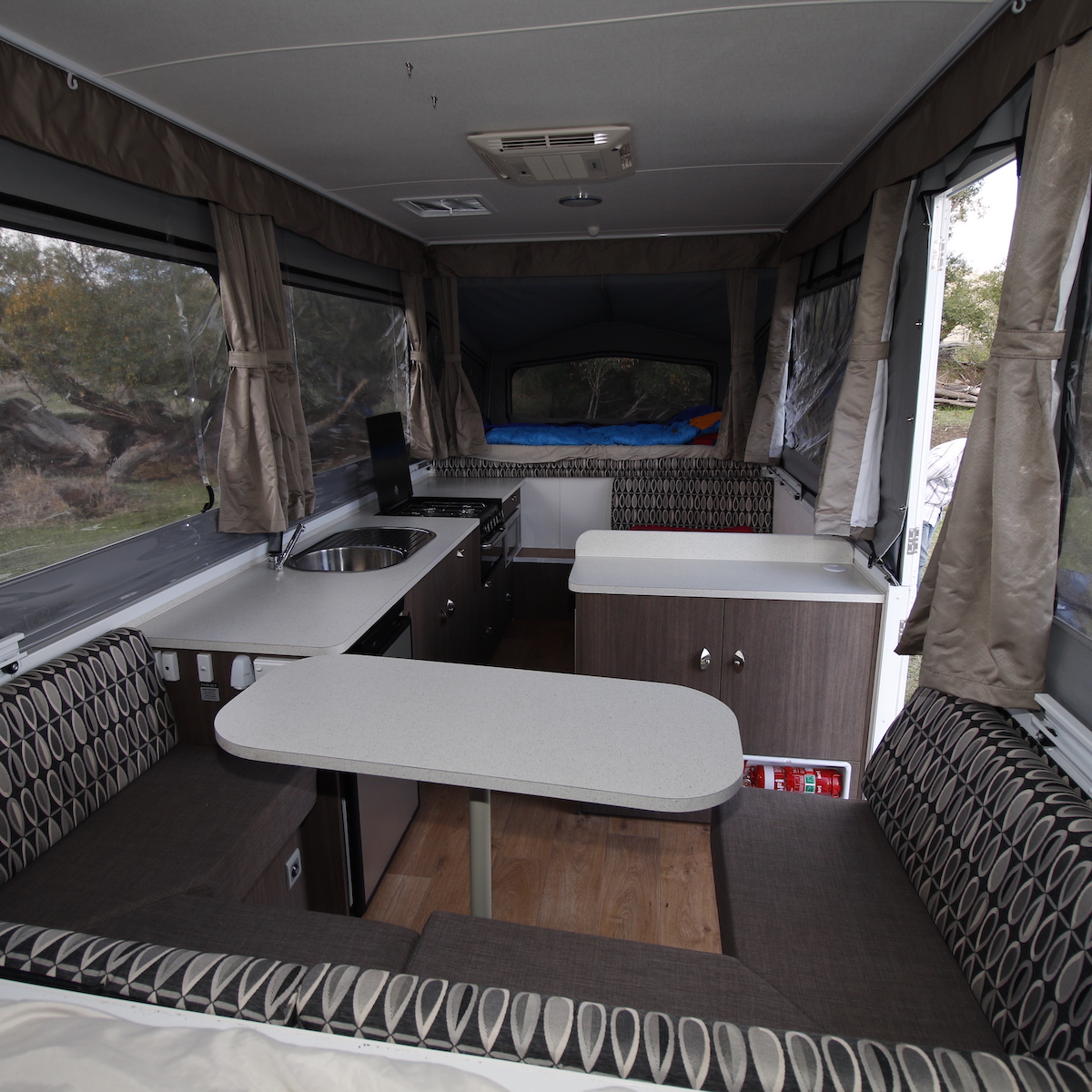
But remember: everything you pack, no matter how small, must be accounted for in your van’s payload capacity.
So ask yourself some difficult questions. Do you really need five pairs of shoes, or will one pair of sneakers and one pair of thongs do the trick? Are you really going to drink five bottles of wine between home and the next time you’re near a bottle shop?
By whittling your gear and supplies down to the essentials, plus some luxuries, you’re putting yourself ahead of the game in terms of making the most of your van’s internal storage spaces.
SAIL-TRACK SOLUTIONS
Some caravans come with sail tracks fitted to the corners where the ceiling meets the walls. If yours doesn’t, why not research having them fitted where there aren’t any overhead lockers?
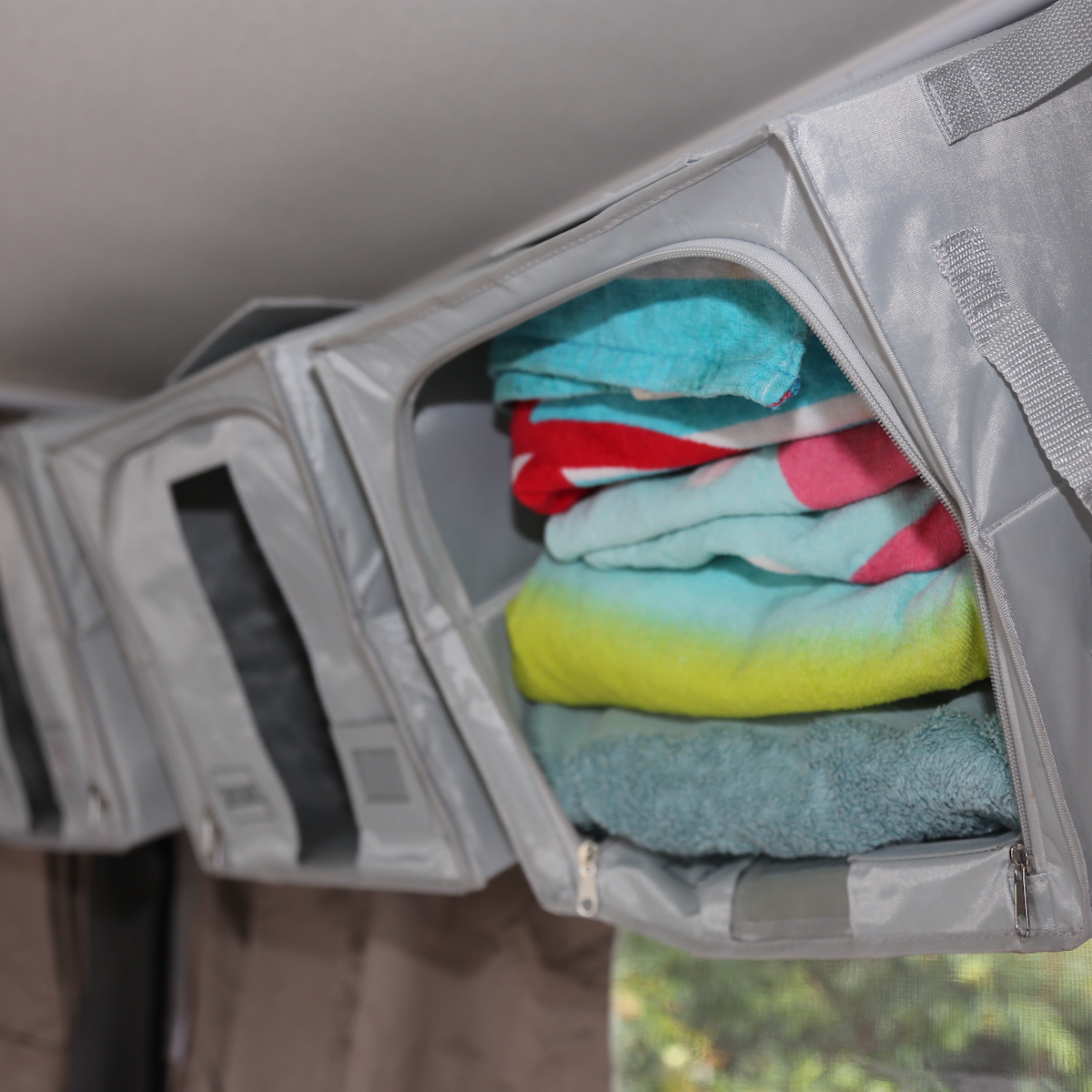
I have found the sail tracks within my Goldstream camper to be invaluable. I purchased so-called ‘Sky Tracks’ from the company. These pop-out baskets come with hooks that easily slide into the sail tracks, providing perfect overhead compartments for towels, snacks, clothes – whatever we want.
When it’s time to wind the camper down, we do need to remove them; however, in a full caravan, I see no reason why you couldn’t leave them hanging.
I’d also wager that basket and hook systems similar to the Sky Tracks are available and, if not, it would not be difficult to improvise your own system once the sail tracks were installed.
NON-SLIP MATTING
Wherever possible, use non-slip matting inside your cupboards and lockers. Non-slip matting is widely available and it really does work. While I’d still recommend packing things inside your cupboards as tightly as possible – within reason – non-slip matting will go a long way towards keeping your items where they belong.
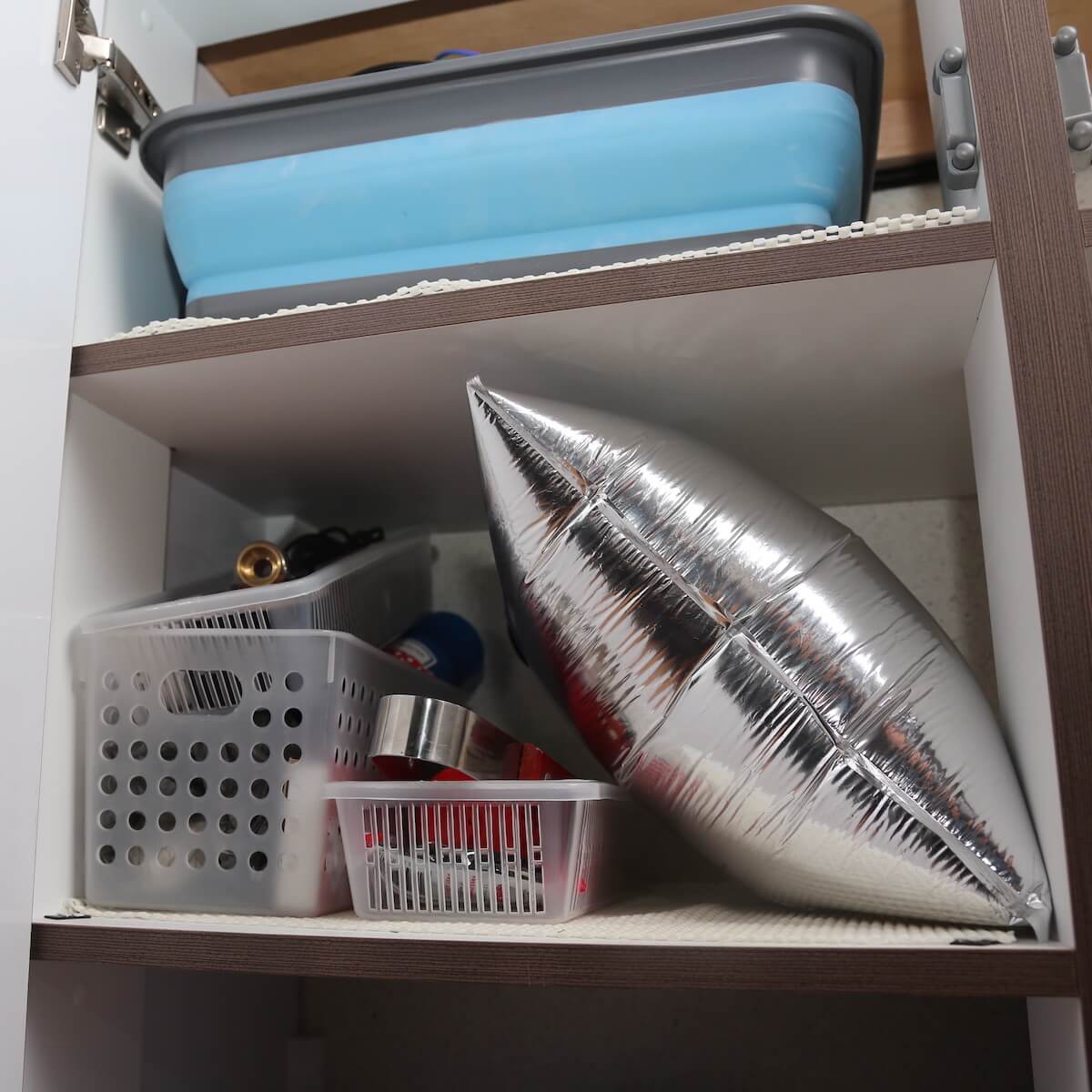
Speaking of packing tightly, why not consider using bed pillows and blankets to act as ‘stuffers’ in order to prevent the things inside the cupboards from toppling over? Someone once suggested to me the idea of using a cask wine bladder. Once inflated (simply blow through the valve), they make excellent ‘stuffers’ that can be deflated when not needed.
THE MATTRESS
I couldn’t believe that I overlooked this potential storage area for so long: the space under the mattress. Items that are mostly flat and aren’t too bulky, such as books, can easily sit here and, thanks to the weight of the mattress, they won’t shift around when you’re under tow.
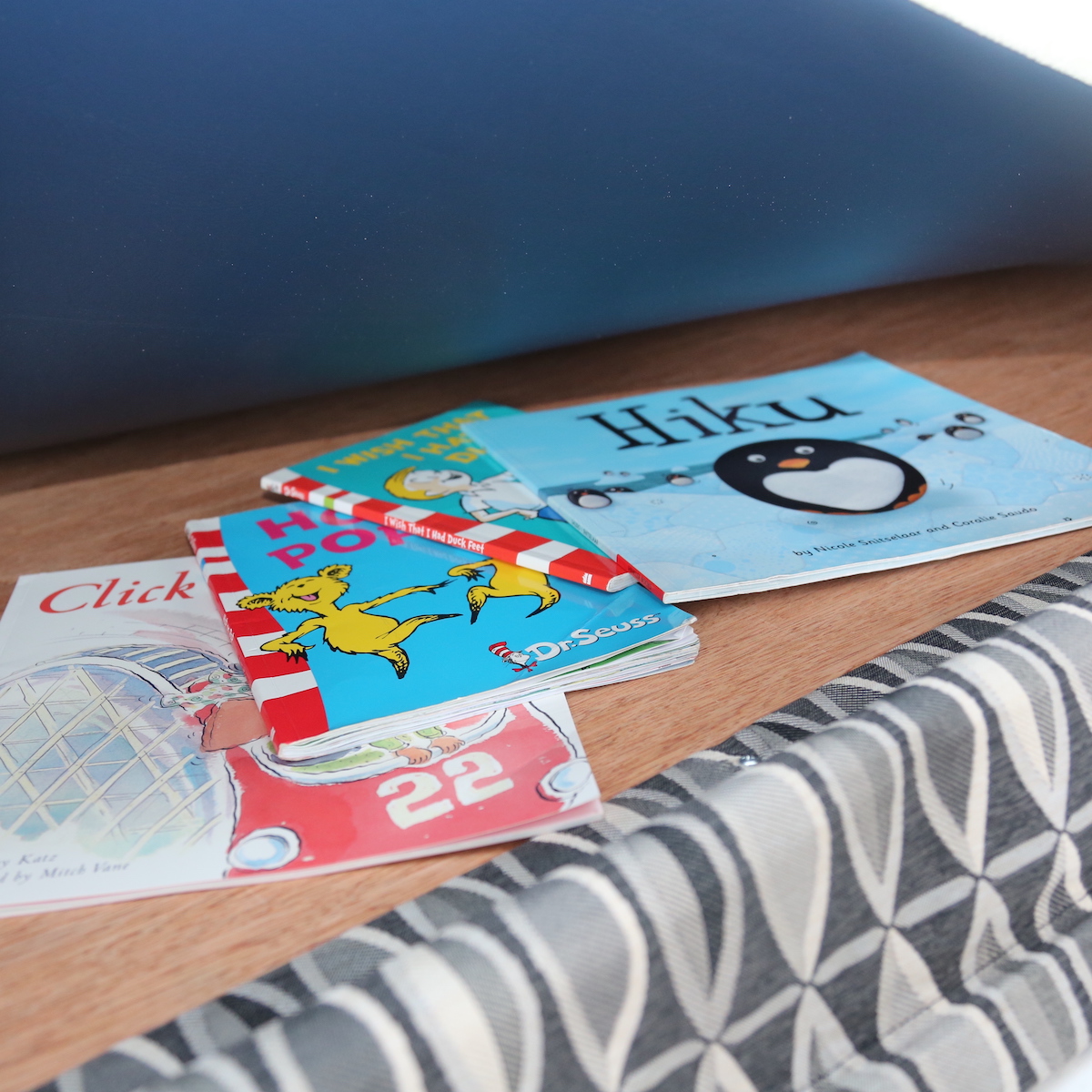
I have even taken to storing tent poles under my camper’s mattress – again, I can’t believe I overlooked this valuable solution for so long!
HARD CASES
Hard briefcase-style cases are fantastic for storing DVDs and other items. While we nowadays stream much of our entertainment when camping, there are still plenty of times when the kids want to watch one of their old DVDs. In those instances, we’re grateful that we condensed our 70-plus DVDs into one case.
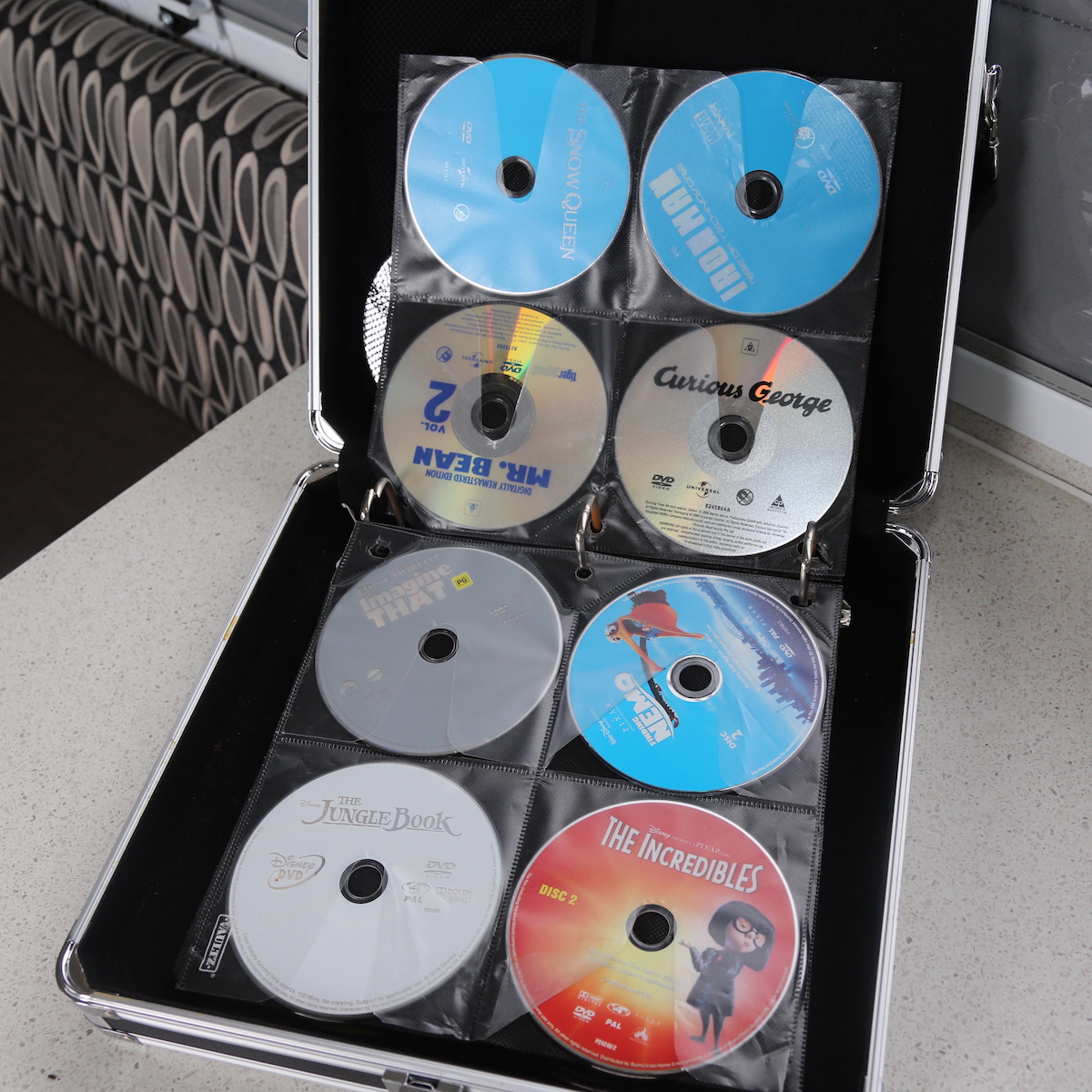
You could also line a suitably-sized hard case, or perhaps a hard laptop-computer case, with foam as a cheap way to protect your RV’s TV.
ULTIMATELY…
Apply some common sense and lateral thinking to the situation.
Consider purchasing space-saving cookware – pots, kettles, etc., that either stack into each other or are made of silicone to allow them to ‘collapse’. In my experience, they make a real difference.
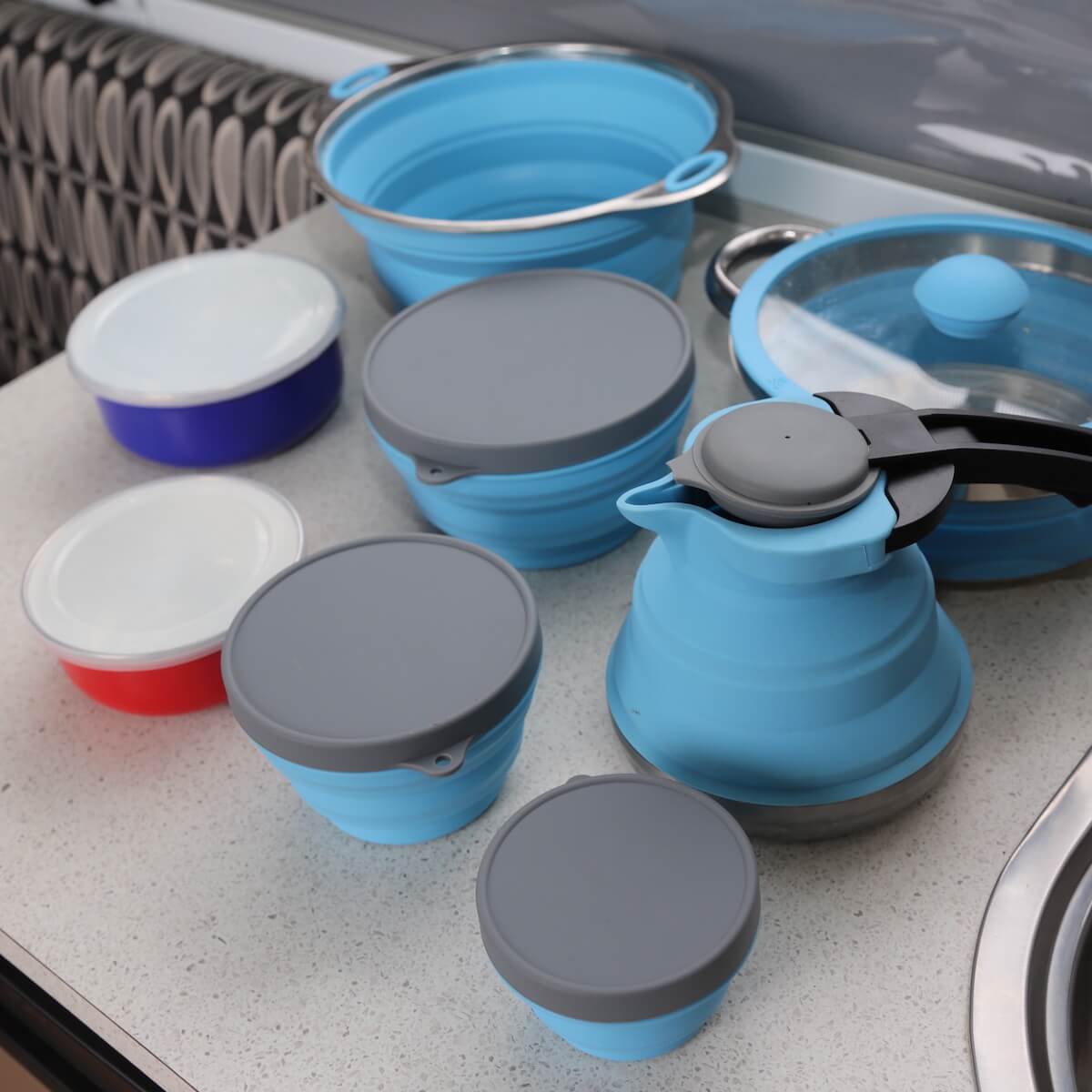
Separate plastic trays for inside your cupboards can help you to keep things organised, while vacuum-packing meat will make a substantial difference to how much you can fit inside your fridge.
Finally, I’ll repeat: everything you pack needs to be accounted for in your van’s payload capacity. So just because you’ve figured out ways to pack more, doesn’t necessarily mean you should!
MEET THE AUTHOR

Max Taylor
Max Taylor has been caravanning since he was a kid and was the editor of some of Australia’s most well-known RV publications for almost 10 years.

